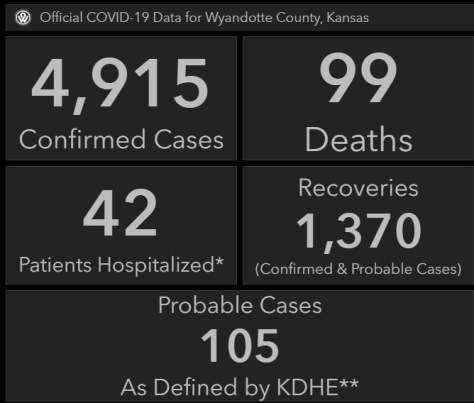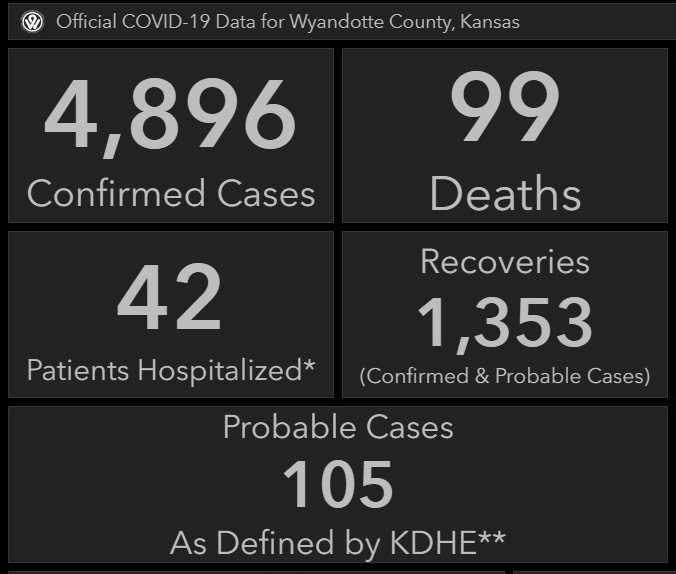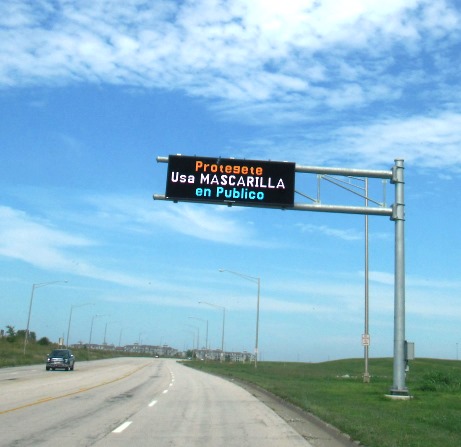How is Wyandotte County spending $37 million of CARES Act federal funding?
Hillcrest Ministries of Wyandotte County, which operates Hillcrest Transitional Living, will receive a $60,000 grant to help homeless families in Kansas City, Kansas.
According to UG information about its grant application, the Hillcrest agency has already been spending $8,000 a month on housing homeless families since March 1, including funds for utilities, maintenance, insurance, case management and needs such as food, transportation, medical, day care and employment expenses. Through the end of the year, the agency plans to spend $80,000 to provide homeless families with a shelter.
Avenue of Life will receive $660,000 to work with 14 agencies to provide services to the community through the Impact KCK collaborative to help prevent the spread of COVID-19 and repair the harm it has caused in the community, according to UG information about its application. Some of those agencies include Avance Community Center, Habitat for Humanity of Kansas City, Brothers in Blue Reentry, Village Initiative, and Workforce Partnership.
United Way of Greater Kansas City will receive $1.245 million for programs and services solely in Wyandotte County including rent and mortgage assistance; utility assistance; temporary housing; staffing for agencies; and an eviction attorney, according to Unified Government information. The money will go to agencies in Wyandotte County that are part of the United Way.
These were just three of the programs approved for funding on Monday night by the Unified Government Commission, in a special Zoom meeting. More than 80 applications for funding were received. The commission approved the recommendations from the UG CARES Act committee.
The $37 million was divided into $13,026,125 for public health; $18,004,781 for cities and counties; and $6,300,028 for education and nonprofit.
Nonprofit organizations in the community received $3.75 million of the $37 million. Food and housing relief were a significant part of the grants approved.
The funds were divided into municipalities, where funding went to the Health Department, public health projects and local governments; education; and nonprofit agencies. On Monday, a few of the nonprofit applications dealing with public health issues were transferred to the public health funding category.
Public health response grants totaled $2.19 million, according to Crystal Sprague, CARES Act Planning Team manager.
According to Sprague, the committee set aside $9 million to go straight into three priorities, improving the adaptability of taxing entities; growing requisite health and human services; and building community resiliency.
The committee received requests for more funding than it had available. Some of the reasons some applications were not funded included recommendations and scoring from the committee; the time needed to implement the project; and what was considered eligible for CARES Act funding based on the guidelines from the federal and state government.
Bonner Springs will receive $780,400 and it listed reimbursements for its public safety payroll as an expense.
Edwardsville will receive $449,400. Reimbursements plus technology are listed as some of the Edwardsville expenses.
The Kansas City, Kansas -Wyandotte County government reimbursement was $3.8 million for personnel; and $1.09 million for contractual and commodity funding. The total is $4.9 million for reimbursement. The UG has tracked COVID-19 overtime and personal leave since the beginning of this event, according to Sprague.
The list showed direct aid by UG department that is planned from Aug. 1 through the end of the year. The city’s investment was listed at $6.3 million, while the county investment without the Health Department added was $6.5 million. The CARES Act team funding was about $453,000.
Many UG departments received funds. In addition, the Board of Public Utilities was listed at $1.354 million for technology expenses, according to the Aug. 10 agenda.
For education funding, the approved total was $2.67 million. The amount requested was $9.3 million.
Kansas City Kansas Community College received $900,000, when it requested more than $4 million. In response to a question from Mayor David Alvey about the allocation for KCKCC, Sprague said the committee looked at how many dollars of CARES Act funding each agency or organization had previously received. Also, each agency or organization received a score that determined funding, she said.
Commissioner Angela Markley, chair of the CARES Act Committee, said parts of the application were more closely aligned to the committee’s higher priorities for the CARES Act funding. Other parts of the college’s application were wonderful ideas, but were not all in the higher priority grouping, she said.
Also, the University of Kansas Medical Center made some significant requests, but was allowed significantly less, $200,000 in two grants under the education category. Commissioner Markley said there wasn’t enough funding to allocate to everyone, so the committee looked at applications, how they would affect residents and how they were aligned to the committee’s goals. The highest priority was protecting public health, she said.
There will be more money available for colleges through Phase 2 of the CARES Act funding process. This process is at the state level.
Commissioner Markley said the process has really been a marathon and one where the rules sometimes seemed to change daily. The committee was asked to distribute the $37 million in a very short time. The committee had an application and screening process. Committee members reviewed each application and scored them, she said.
The UG’s CARES Act staff will continue to track and monitor the allocations, Commissioner Markley said, and will report back to the UG Administration and Human Services standing committee regularly.
The applications were evaluated by the committee, with committee members scoring them according to a list of questions, according to Sprague.
The next step is for the applications to go to the state. The state will hold the final decision on CARES Act funding here, Sprague said.
Business funding now will be in Phase 2 of the CARES Act funding, which will be handled by the Kansas Department of Commerce, with an application online. Businesses and organizations will be able to apply for Kansas SPARK economic development and broadband grants starting at noon Wednesday, Aug. 19, at kansascommerce.gov/covidrelief.
The list of agencies and funding they received is online in the agenda for the 7 p.m. Monday special meeting, at https://www.wycokck.org/Clerk/Agendas.aspx.
A list of CARES Act grant recipients from the $37 million allocated to Wyandotte County was posted online on Aug. 12: Nonprofits, education and medical: https://alpha.wycokck.org/files/assets/public/government/cares-act/documents/08112020caresactawarded.pdf
The amount of funds that governments and the Health Department were to receive are listed in the Aug. 10 special meeting agenda at https://www.wycokck.org/Clerk/Agendas.aspx.
To see a video of the Monday night meeting, visit https://www.youtube.com/watch?v=2xqWaYe0zfw&feature=youtu.be.
To see an earlier story on this topic, visit https://wyandotteonline.com/wyandotte-county-committee-makes-recommendations-for-spending-37-million-in-cares-act-funding/.



